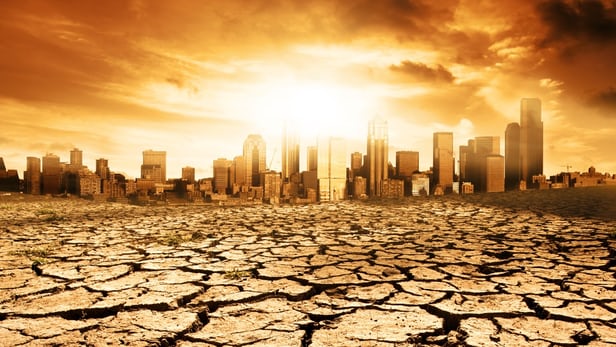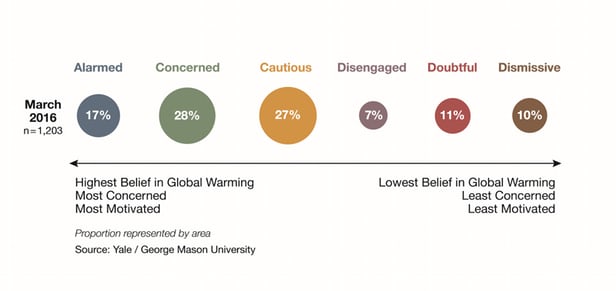One Big Question: Why do some people refuse to accept that human-induced climate change is real?

Even though the evidence points to an unprecedented rate of human induced planetary warming, not everyone is convinced(Credit: kwest/Depositphotos)
We've noticed something here at New Atlas. We often see some of the liveliest comments on the site whenever we post an article relating to climate change. Many of those comments have to do with whether or not the concept of rapid, human induced climate change is indeed real or not. This got us wondering why the topic garners so many naysayers when other research-based findings in different areas of science on which we report do not.
So, as part of our regular One Big Question series, we got in touch with Edward Maibach, the director of the Center for Climate Change Communication at George Mason University in Virginia and we put this question to him:
Despite the scientific evidence, why do some people react so vehemently against the idea that rapid, human induced climate change is an actual phenomenon?
Here's what he had to say from his perspective in the American socio-political arena. And please feel free to let us know what you think in the comments below. We wouldn't have it any other way.

About seven in 10 Americans currently say they are convinced that climate change is happening, two in 10 say they "don't know," and one in 10 firmly dismiss the possibility. My colleagues and I call this latter group the "Dismissive," because they emphatically oppose the reality of human-caused climate change. The question is: Why?
There are at least several answers to this important
question. In short, they are: money, politics, deeply held
tendencies of human psychology and sociology, and strategic
communication. I'll elaborate briefly here.
Two decades ago, Democrats and Republicans had largely similar views of climate change – although few Americans, then as now, knew much about it. Since then – as the scientific proof of harmful climate change has steadily accumulated – a profound polarization slowly took place: nearly all Democrats have become convinced, while many Republicans changed their minds and no longer accept the premise.
Many factors contributed to this politicization of climate change, including – and perhaps especially – strategic disinformation campaigns funded by the fossil fuel industry (akin to the strategic disinformation campaigns perpetrated on Americans for so many decades by the tobacco industry).
Merchants of Doubt
The endlessly repeated messages of the "merchants of doubt" were distributed directly through paid advertising, and indirectly by conservative think tanks, partisan news media outlets (especially Fox News and the Wall Street Journal), and some Republican elected officials. The liberal establishment and environmental organizations were largely ineffective in countering these messages; indeed their efforts may have been counterproductive, inadvertently reinforcing the notion that climate change was more about (liberal) politics than science or human wellbeing.
The actions of these motivated actors found fertile ground in the minds of ordinary Americans.
People – all of us, but especially those of us who hold strong, often partisan, views – have a tendency to engage in "motivated reasoning." We tend to seek out (or at least pay more attention to) and agree with information that is consistent with our worldview, and dismiss information that conflicts with our worldview.
As economic and political actors repeatedly made simple, powerful (factually incorrect) arguments against the reality and/or seriousness of climate change, these arguments resonated with the free-market world views of many Americans. In short, climate change became a victim of tribal thinking that was enabled by effective (and highly destructive) strategic communication: simple clear messages, repeated often, by a variety of trusted voices.
Although thankfully most Americans are convinced of the reality – and to a lesser degree the seriousness – of climate change, many Republican members of Congress and governors remain unconvinced (at least in their public statements). While it may not matter much if a small proportion of ordinary Americans remain unconvinced, it matters a lot that so many of our elected representatives are unwilling to see that it's in our nation's – and our world's – best interest to embrace the clean energy revolution that is our best hedge against serious climate disruption.
Copyright © Gizmag Pty Ltd 2016